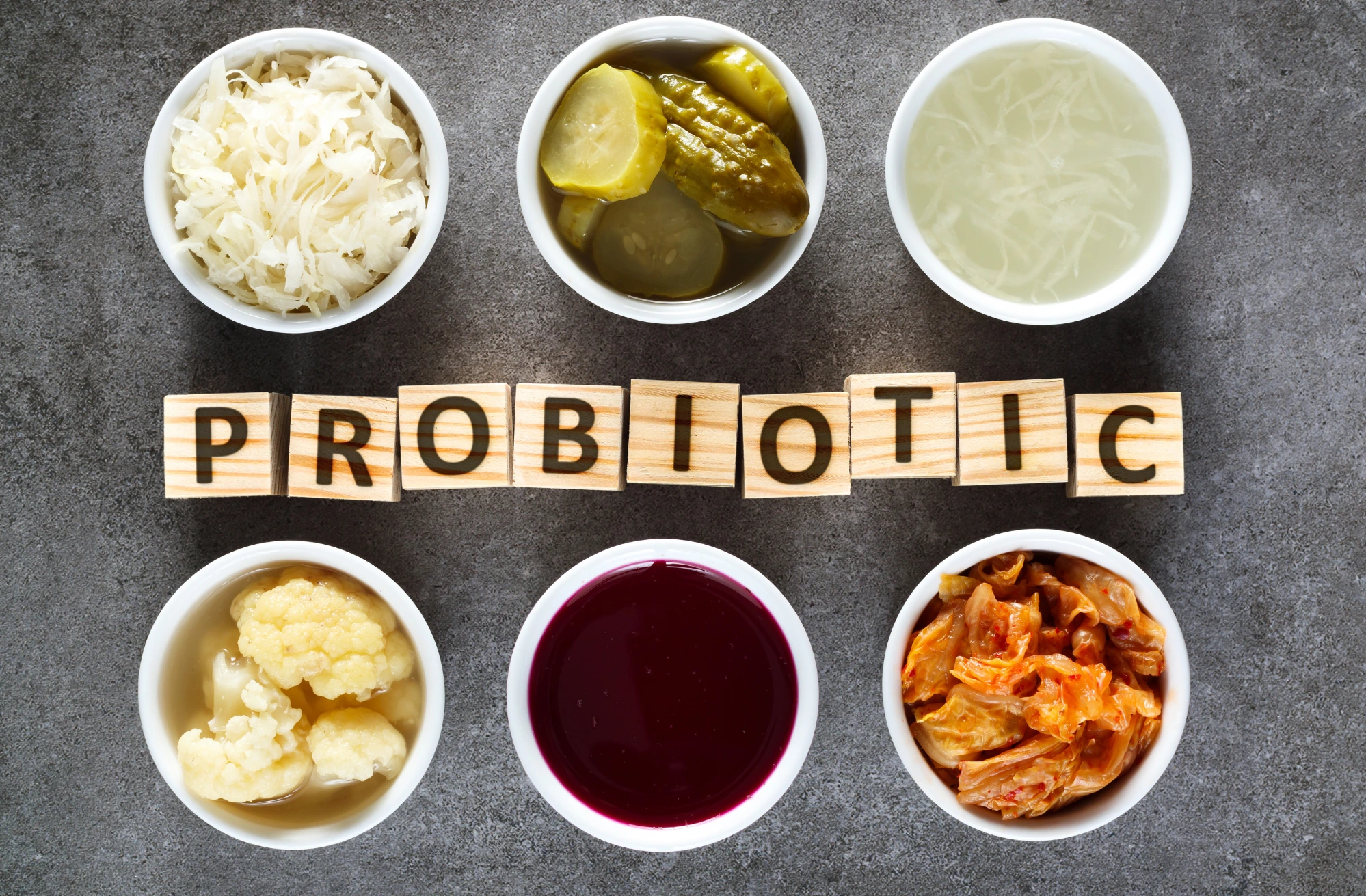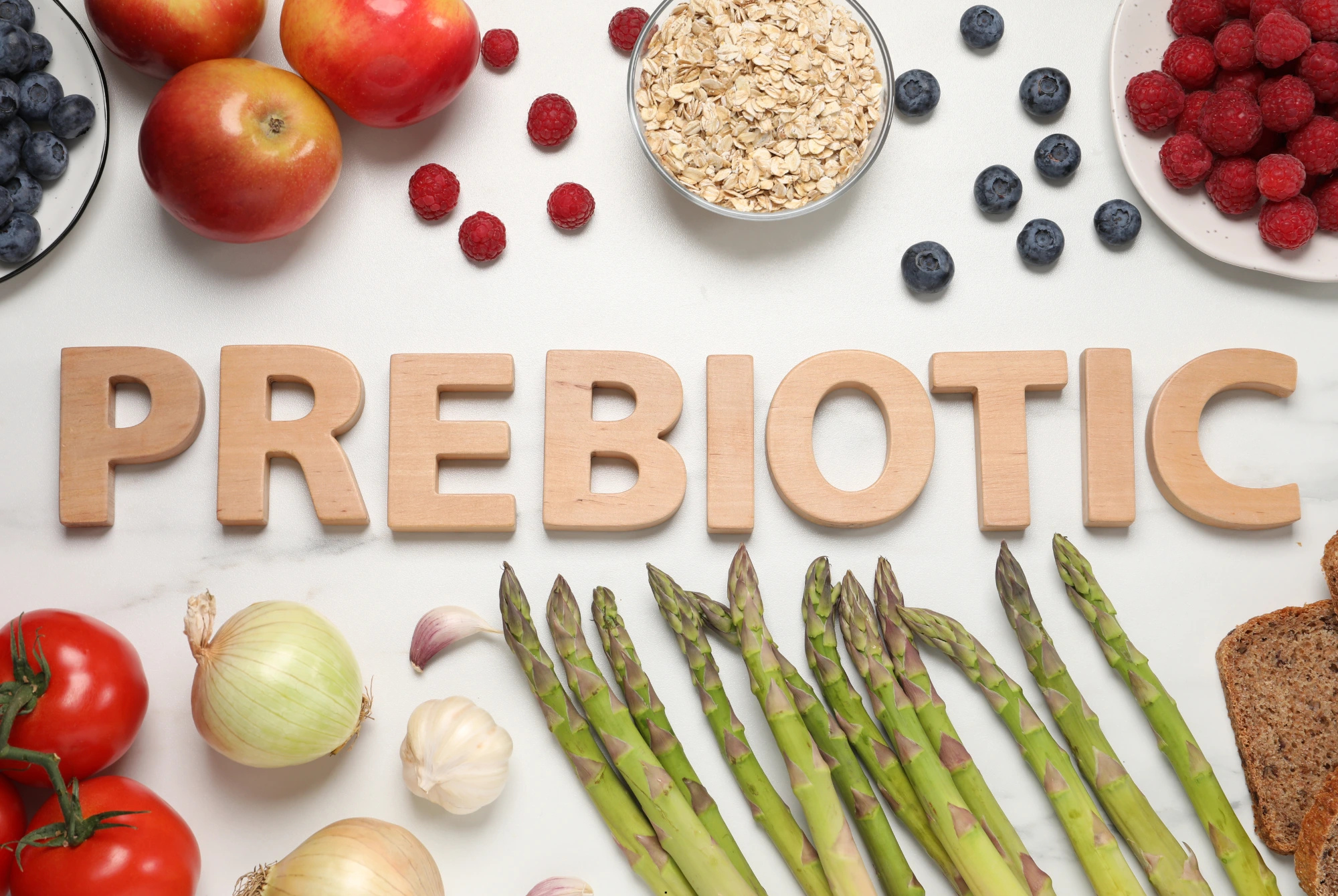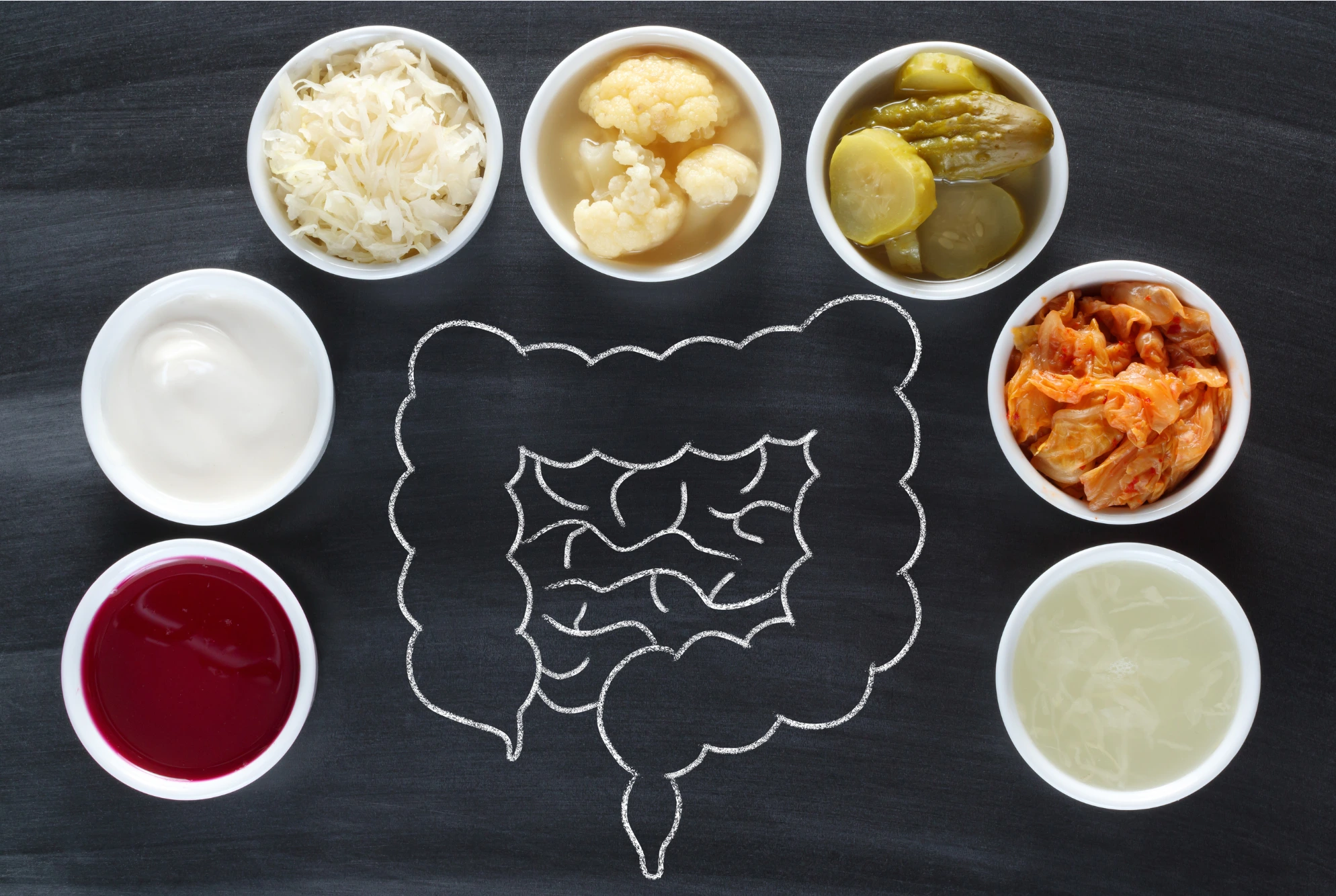Probiotics vs. Prebiotics: The Gut Health Duo
An extraordinary relationship happens in the complex ecosystem of our digestive system between two key components that frequently take center stage in the field of gut health: probiotics and prebiotics. These two ingredients, like a symphony of microorganisms, these two elements work in harmony.
Welcome to a journey into the delicate balance of probiotics and prebiotics, also known as the gut health duo. We will begin to understand the mysteries of how these chemicals, despite their varied responsibilities, dance together to create a melody of well-being.
So buckle in as we journey through the world of gut health, where the symphony of probiotics and prebiotics creates a song of balance and long-term wellness.

Probiotics
Probiotics are live microorganisms that, when consumed in adequate amounts, offer a wide range of health benefits. These microorganisms are typically bacteria, but they can also include certain strains of yeast. Probiotics are often referred to as “good” or “friendly” bacteria because of their positive effects on human health.
The most common types of probiotics are strains of Lactobacillus and Bifidobacterium bacteria; however, there are many other species and strains. Lactic acid bacteria, often referred to as LAB, are a group of bacteria known for their ability to produce lactic acid as a metabolic byproduct. These bacteria play significant roles in various processes, particularly in food production, fermentation, and the maintenance of a healthy gut microbiome.
Certain fermented foods and dairy products, such as yogurt, kefir, and some types of cheese contain probiotics. Probiotics supplementation can be dietary supplements in the form of capsules, tablets, powders, or liquids.
Probiotics are crucial for their role in maintaining a healthy balance of the gut microbiome. A gut microbiome is a community of microorganisms living in our digestive tract.
Probiotics play a significant role in complementary and alternative medicine (CAM), known as integrative or holistic medicine. CAM approaches emphasize the combination of conventional medical treatments with complementary therapies to promote overall health and well-being. Probiotics are often used in various CAM practices for their potential to support digestive health, boost the immune system, and address a range of health issues.

Prebiotics
Prebiotics are a type of non-digestible dietary fiber. They serve as a source of nourishment for beneficial microorganisms, particularly probiotics, in the gut. Instead of being broken down by our digestive enzymes, these substances enter the colon mostly intact and serve as food for the good bacteria that live there.
Prebiotics help support the growth and activity of probiotics (beneficial bacteria) in the gut, contributing to a healthier balance of the gut microbiome. This synergy between prebiotics and probiotics is often referred to as the “gut health duo” and is essential for maintaining optimal gut health and overall well-being.
Eating meals high in prebiotics can aid in fostering the development of a favorable environment in the gut for probiotic growth and activity.
Therefore, this can result in numerous health benefits, such as better digestion, increased nutritional absorption, a more robust immune system, and possibly even favorable impacts on mental health.

Health Benefits of Probiotics and Prebiotics
Probiotics and prebiotics offer a wide range of health benefits, particularly when used in combination to support a healthy gut microbiome.
Here are some of the key health benefits associated with both probiotics and prebiotics:
Health Benefits of Probiotics:
Improved Digestive Health
Probiotics can help reduce various digestive issues, including diarrhea, irritable bowel syndrome (IBS), and inflammatory bowel diseases (such as Crohn’s disease and ulcerative colitis).
Balanced Gut Microbiome
Probiotics promote the growth of beneficial bacteria in the gut and help to maintain a healthy microbial balance. Probiotics are often used in clinical nutrition to support and restore gut health.
Enhanced Nutrient Absorption
They aid in the absorption of essential nutrients like vitamins and minerals.
Stronger Immune System
Probiotics can boost the body’s immune response by enhancing the activity of immune cells and competing with harmful microorganisms for resources. People who suffer from compromised immune systems will benefit from probiotic supplementation.
Mental Health
Emerging research suggests that probiotics can influence the gut-brain connection. Therefore, probiotics could potentially play a role in mood and mental health.
Skin Health
Some studies indicate that probiotics may help improve skin conditions such as acne and eczema by modulating the inflammatory response.
Allergy Management
Probiotics may reduce the risk of allergies and sensitivities by regulating the immune system’s response.
Health Benefits of Prebiotics:
Promotion of Beneficial Bacteria
Prebiotics serve as food for probiotics and other beneficial gut bacteria, promoting their growth and activity.
Improved Gut Health
By enhancing the population of good bacteria, prebiotics contribute to a balanced gut microbiome, which is essential for overall digestive health.
Enhanced Mineral Absorption
Prebiotics can increase the absorption of minerals like calcium and magnesium.
Blood Sugar Regulation
Some prebiotics may help regulate blood sugar levels, which is beneficial for individuals with diabetes or those at risk of developing the condition.
Weight Management
Prebiotics may help control appetite and reduce calorie absorption, potentially aiding in weight management.
Reduced Risk of Colorectal Cancer
A diet rich in prebiotic fiber may lower the risk of colorectal cancer.
Heart Health
Certain prebiotics can help lower cholesterol levels, promoting cardiovascular health.
Improved Bone Health
By enhancing mineral absorption, prebiotics may also contribute to stronger bones.
Effects of Antibiotics without Probiotics and Prebiotics
Antibiotics can have a significant impact on the gut microbiome. If a doctor prescribes antibiotics and you do not take probiotics alongside them, several effects may occur:
Alteration of Gut Microbiome
The purpose of antibiotics is to eliminate harmful bacteria, but they can also affect beneficial bacteria in your gut. As a result, there is a disruption in the balance of the gut microbiome.
Reduced Diversity of Microbes
Antibiotics can lead to a reduction in the diversity of microbes in the gut. A diverse gut microbiome can lead to better health, while a less diverse one can cause various health issues.
Risk of Antibiotic-Associated Diarrhea (AAD)
One of the most common side effects of antibiotics is antibiotic-associated diarrhea. The disruption of the gut microbiome may be the cause of this, as it can lead to the overgrowth of some dangerous bacteria, such as Clostridium difficile.
Prolonged Recovery from Illness
After completing a course of antibiotics, it can take time for the gut microbiome to recover and return to a balanced state. During this time, you may experience digestive discomfort and potential long-term effects.
Opportunity for Resistant Bacteria
The use of antibiotics can create an opportunity for antibiotic-resistant bacteria to thrive, as they are less affected by the drugs, which can have implications for future infections.
Taking Probiotics
Taking probiotics alongside antibiotics can help mitigate some of these effects. Probiotics introduce beneficial bacteria into the gut, helping to maintain a more balanced microbiome. However, it’s important to consider the following when taking probiotics with antibiotics:
Consult with a Healthcare Provider
Before taking probiotics with antibiotics, consult with your healthcare provider. They can recommend the appropriate probiotic strain and dosage based on your specific condition and the type of antibiotic you’re taking.
Timing Matters
The timing of probiotics is crucial. To reduce the interference between antibiotics and probiotics, take them at different times of the day.
Choosing the Right Probiotic Strain
Different probiotic strains have different benefits. Depending on your specific needs, you may need a particular strain or a combination of strains. Your healthcare provider can help with this decision.
Probiotic-Rich Foods
In addition to supplements, you can consume probiotic-rich foods, such as yogurt or kefir, to support gut health during and after antibiotic treatment.
Post-Antibiotic Probiotics
Continue taking probiotics for a period of time after completing the antibiotic course to help restore and maintain a balanced gut microbiome.
In summary, while antibiotics can disrupt the gut microbiome, the use of probiotics alongside antibiotics can help reduce these effects. Consult with a healthcare provider for personalized advice on probiotic use during antibiotic treatment, especially if you have specific health concerns.
Sources of Probiotics and Prebiotics
Sources of Probiotics:
Probiotic-rich foods are natural sources of live beneficial bacteria that can support your gut health. Including these foods in your diet can help promote a balanced and diverse microbiome. Here are some common probiotic-rich foods:
Yogurt: Yogurt is one of the most well-known sources of probiotics. Look for yogurt labeled with “live and active cultures,” which indicates the presence of beneficial bacteria.
Kefir: Kefir is a fermented milk drink that contains a variety of probiotic strains and is similar in texture to yogurt.
Fermented Foods: A wide range of fermented foods can be rich in probiotics, including sauerkraut, kimchi, pickles, and traditional fermented soy products like miso and tempeh.
Buttermilk: Traditional buttermilk, which is the liquid left after churning butter, often contains probiotics.
Fermented Cheeses: Some cheeses, particularly those with live cultures, such as Gouda, cheddar, and cottage cheese, may contain probiotics.
Supplements: Probiotic supplements are available in various forms, including capsules, tablets, powders, and liquids. These products typically contain specific strains of probiotics in controlled doses.Well of Life Biome Renew 4The Well of Life’s Biome Renew 4 is a 100% natural, all-in-one prebiotic, probiotic, and postbiotic, which is uniquely formulated from a soil-based organism to support excellent gut and digestive health and heal autoimmune diseases.
 Well Of Life Probiotic-40 BillionBuilding and maintaining a healthy gut microbiome is a key component of good health. The Well Of Life™ Probiotic contains 40 Billion CFU to ensure that you are getting the amount of good bacteria you need.
Well Of Life Probiotic-40 BillionBuilding and maintaining a healthy gut microbiome is a key component of good health. The Well Of Life™ Probiotic contains 40 Billion CFU to ensure that you are getting the amount of good bacteria you need.
Fermented Beverages: Beyond kefir, other fermented beverages like kombucha and some types of fermented herbal teas can be probiotic-rich.
Sources of Prebiotics:
Chicory Root: Chicory root is a primary source of inulin, a well-known prebiotic fiber. It can substitute roasted coffee or added to foods as a supplement.
Jerusalem Artichokes: There’s an inherent high inulin content in these knobby root veggies. You can include them in your diet by roasting, simmering, or mashing them.
Onions and Garlic: Both onions and garlic contain fructooligosaccharides (FOS), a type of prebiotic fiber. Use them in cooking to enjoy their prebiotic benefits.
Leeks: Leeks are another source of FOS. They are a common addition to soups, stews, and salads.
Bananas: Underripe bananas are rich in resistant starch, which acts as a prebiotic. As they ripen, the starch converts to simple sugars.
Asparagus: Asparagus is high in inulin and is commonly grilled, roasted, or sautéed.
Legumes: Legumes like lentils, chickpeas, and beans contain various prebiotic fibers. A variety of dishes, such as soups, salads, and curries, include legumes.
Whole Grains: Certain whole grains, like oats, barley, and wheat, are rich in beta-glucans and other prebiotic fibers.
Dandelion Greens: Dandelion greens are a source of inulin. They are a great addition to salads or smoothies.
Acacia Gum: Acacia gum, also known as gum Arabic, is a commercial source of prebiotics and is often used as a food additive.
Include a range of these items in your diet to attain the maximum benefits of prebiotics. Different types of prebiotic fibers may support different beneficial bacteria in your gut. A balanced diet that combines probiotic-rich and prebiotic-rich foods can help maintain a healthy gut microbiome.

Studies on Probiotic Supplements
Probiotic supplements have gained popularity due to their potential health benefits, particularly in supporting gut health. While the effectiveness of probiotics can vary depending on the specific strain and individual health conditions, several studies have provided evidence of their importance.
Here are a few key studies highlighting the significance of probiotic supplements:
Gastrointestinal Disorders
A study published in “Gastroenterology” in 2018 demonstrated that probiotics can be effective in managing irritable bowel syndrome (IBS). Specific strains, such as Bifidobacterium and Lactobacillus, can alleviate IBS symptoms.
Antibiotic-Associated Diarrhea
Research published in the “Journal of the American Medical Association” in 2012 indicated that taking probiotics alongside antibiotics reduced the risk of antibiotic-associated diarrhea.
Inflammatory Bowel Disease (IBD)
A meta-analysis published in “Inflammatory Bowel Diseases” in 2020 suggested that probiotics might have a beneficial impact on IBD patients by reducing disease activity and promoting remission in some cases.
Immune System Support
A study published in “Nutrients” in 2019 explored the role of probiotics in supporting the immune system. It found that certain probiotic strains can enhance the body’s defense mechanisms and reduce the risk of respiratory infections.
Mental Health
While still an emerging field of research, some studies have suggested a connection between gut health and mental health. Investigations on probiotics have shown they have a role in managing conditions like anxiety and depression.
Allergies and Atopic Diseases
Clinical trials have explored the use of probiotics in reducing the risk of allergies and atopic diseases in children. A meta-analysis published in “Pediatrics” in 2015 found that probiotic supplementation during pregnancy and infancy might lower the risk of eczema.
Key Takeaways
In conclusion, the dynamic interplay between probiotics and prebiotics is vital for maintaining optimal gut health. Both components, while distinct, work in synergy to promote a balanced and thriving gut microbiome. Probiotics are live beneficial bacteria that can directly contribute to the gut’s microbial diversity, offering various health benefits. They are present in fermented foods, specific strains that address particular needs, and supplements.
Prebiotics, on the other hand, are non-digestible fibers that serve as food for the beneficial bacteria residing in the gut. They help probiotics flourish and establish a more diverse and resilient microbiome. Foods rich in prebiotics, such as whole grains, vegetables, and legumes, play a crucial role in nourishing the gut.
Understanding the gut health duo involves recognizing the importance of balance and moderation. Too much of a good thing can be counterproductive. Excessive consumption of probiotics or prebiotics may lead to imbalances in the gut, causing discomfort and digestive issues.
The key to harnessing the benefits of probiotics and prebiotics lies in a well-rounded, diverse diet that incorporates both elements. This way, you can support the growth of beneficial bacteria while also nurturing your overall health. It’s essential to tailor your approach to your specific needs and consult with a healthcare professional if you have any concerns or underlying digestive conditions.
In a world where gut health plays a significant role in our overall well-being, understanding the probiotics and prebiotics duo empowers us to make informed choices about our diet and lifestyle. By prioritizing a diet rich in both probiotic and prebiotic sources, we can embark on a path to better digestion, improved immunity, and enhanced overall health. Remember, a healthy gut is a cornerstone of a healthy life.





4 thoughts on “Probiotics vs. Prebiotics: The Gut Health Duo”
Great information! Especially important to include timing of Prebiotics and Probiotics! Thanks!
Thanks for the well done article.
I wanted to bring up another point about the gut,
Some people are undermethalaters (sp? )
that means they are unable to process the nutrients from
the food they eat,
I am just learning about this, but it seems the brassicas and even garlic and onions can be difficult until this issue is remedied.
I do believe this can be related to heavy metal toxicity as well.
So the web spins wider. It is all correctable just challenging.
Thanks again for your compassion and good work! You are both amazing
Hi, is this product halal certified or suitable for Vegan.
Thank you
Hi There Mahmud, unfortunately, Probiotic 40 Billion and our present stock of Biome Renew 4 are not halal-certified. Thank you